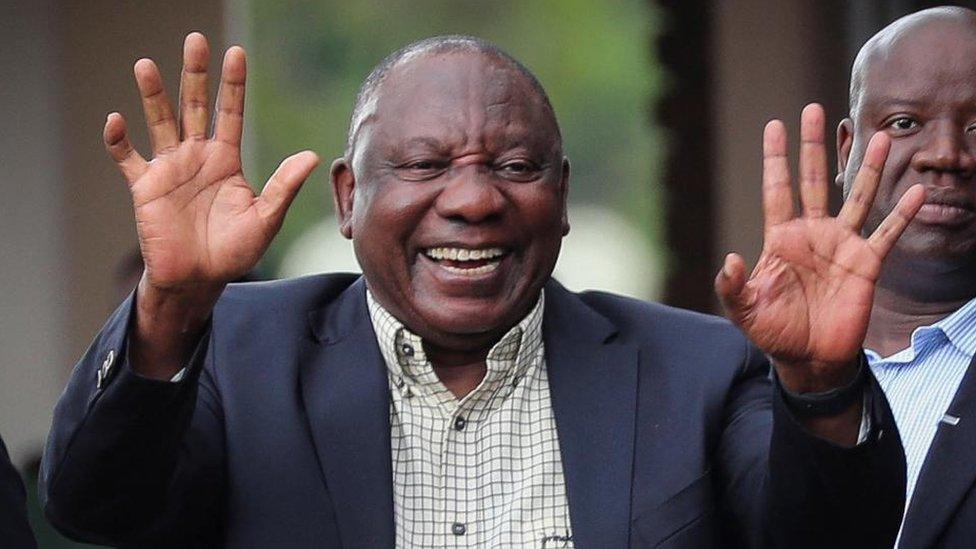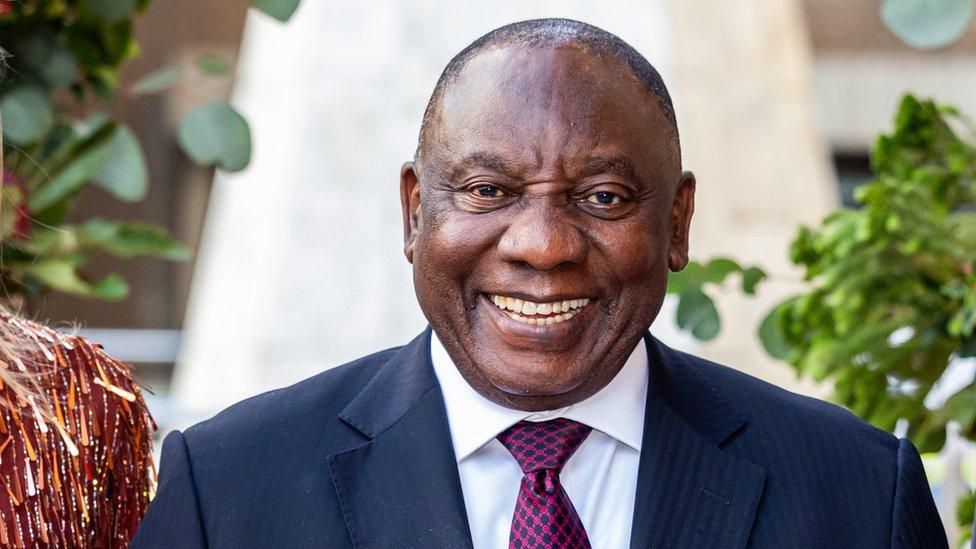Cyril Ramaphosa: ANC backs South African president over corruption report
- Published

Cyril Ramaphosa came to power in 2018 on a mission to clean up corruption
Leaders of South Africa's governing party have backed President Cyril Ramaphosa as he faces corruption allegations and a possible vote in parliament on impeachment.
He came to power pledging to tackle corruption but has now been caught up in his own crisis.
An independent report said Mr Ramaphosa may have broken the law by allegedly covering up a theft at his farm.
He has denied any wrongdoing and his spokesman said the report was "flawed".
The report, which was commissioned from a panel of legal experts by the speaker, is due to be debated in parliament on Tuesday. The African National Congress (ANC) leadership has said it will tell its MPs, who form the majority, to vote against its adoption.
This came after Mr Ramaphosa challenged the report in the country's Constitutional Court.
Earlier, leader of the opposition Economic Freedom Fighters Julius Malema called for the arrest of the president alleging that he had committed a crime. Mr Ramaphosa has not been charged with anything at this point.
Faced with a difficult economic situation, South Africans are watching this unfold wondering how it could affect them and waiting to see if yet another president will be brought down by allegations of corruption.
Mr Ramaphosa became president in 2018 after the resignation of Jacob Zuma, whose time in office had been weighed down by many such allegations.
The ANC remains deeply divided between supporters of Mr Zuma and those who back Mr Ramaphosa.
This scandal erupted in June, when a former South African spy boss, Zuma-ally Arthur Fraser, filed a complaint with police accusing the president of hiding a theft of $4m (£3.25m) in cash from his Phala Phala game farm in 2020.
Mr Ramaphosa admitted that some money, which had been hidden in a sofa, had been stolen, but said it was $580,000 not $4m.
The president said the $580,000 had come from the sale of buffalo, but the panel, headed by a former chief justice, said it had "substantial doubt" about whether a sale took place.
South Africa has strict rules on holding foreign currency, which say that it must be deposited with an authorised dealer such as a bank with 30 days. It appears as though the president may have broken those rules, according to the panel's report.
Furthermore, if the money was from selling buffalo as he said, this money should have been declared, rather than kept in cash.
In his submission to the Constitutional Court, Mr Ramaphosa wants the country's top judges to rule that the findings of the panel are unlawful and set aside.
The president argues that the panel went beyond its scope when looking at whether he had a case to answer related to the robbery at the farm.
He is also asking the court to declare that any steps taken by parliament on the back of the release of the report to be declared unlawful and invalid.
Related topics
- Published17 June 2024

- Published9 July 2024
